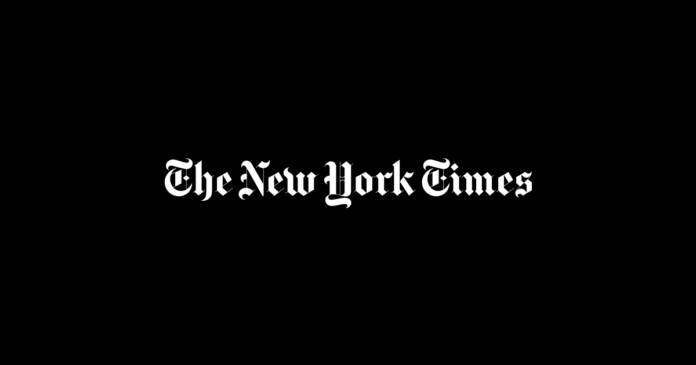BEIJING — China has detained another Canadian citizen, the authorities in Canada have said, adding to the high tensions between the two countries’ governments.
The person, who was not identified by the Canadians, was arrested this past week in the eastern Chinese city of Yantai, according to Global Affairs Canada, the country’s foreign ministry. The Canadian being held in custody has received consular services, the ministry said on Saturday.
The two countries have been at odds since December, when China arrested two Canadians — a former diplomat and a businessman — who were later charged with espionage.
Their arrests are believed to have been in retaliation for the arrest by Canada that same month of a senior executive at Huawei, the Chinese telecommunications giant that the United States has declared a security threat. Chinese courts have also sentenced two other Canadians to death on drug-related charges.
The detention of the Canadian last week occurred at about the same time as the arrest of a number of foreign teachers and students on drug charges in the city of Xuzhou, also in eastern China.
At least four of the 16 arrested in Xuzhou were British teachers, according to the British Embassy in Beijing.
It was not immediately clear if the arrest of the Canadian in Yantai was connected to the arrests in Xuzhou.
But it could be a way for China to once again signal to Canada that it wants the Huawei executive, Meng Wanzhou, to be released, according to a former Canadian official, who declined to be named because of the sensitivity of the cases.
Ms. Meng, who owns two multimillion-dollar mansions in Vancouver, British Columbia, is on bail and living in one of them while she awaits trial in January. She is seen as corporate royalty in China, and her arrest has been interpreted among the Chinese elite as a signal that the government is unable to protect its most valued people as they travel the globe.
The arrests of the Canadian and of the foreign students and teachers last week come as American business executives have expressed alarm about their safety traveling in China. Washington has warned Americans that the Chinese authorities have blocked a number of Americans from leaving the country, a practice known as exit bans.
Last month, a Chinese-American executive at Koch Industries was interrogated for multiple days in southern China, with the authorities allowing him to leave only after the State Department intervened.
Since Ms. Meng’s arrest, the Chinese government has ratcheted up the pressure on Canada, halting imports of Canadian canola oil and beef. Officials have been unusually brittle in expressing disdain for the country.
“We hope that the Canadian side will not be too naïve,” Geng Shuang, a spokesman at the Chinese Ministry of Foreign Affairs, said this month.
“Canada shouldn’t naïvely think that gathering so-called allies to put pressure on China will work,” he said.
Mr. Geng was referring to Canadian officials asking Washington for help in the release of the former diplomat, Michael Kovrig, and the businessman, Michael Spavor. Both men have been held in secret detention sites, without visits from lawyers or family members.
When Prime Minister Justin Trudeau of Canada visited the White House in June, he said that President Trump had pledged to raise the detention of Mr. Kovrig and Mr. Spavor when he met with the Chinese leader, Xi Jinping, in Japan at the end of that month. It is not known whether Mr. Trump did so.
Source : Nytimes











